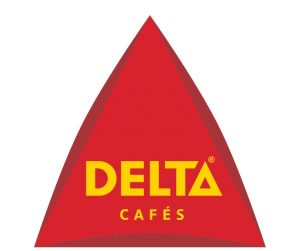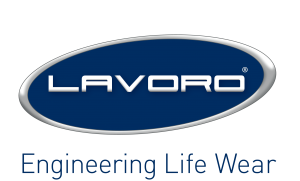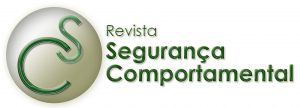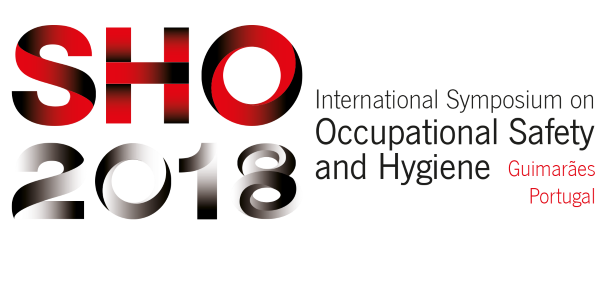
26 and 27 March 2018 @ Guimarães
INVITED SPEAKERS
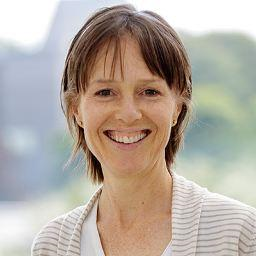
Anne Drummond
Work-Related Road Traffic Fatalities
Anne Drummond (RGN, RM, HDipSHWW, MSc, PhD, CFIOSH, FFOM (Hon) RCPI) qualified as a nurse and midwife, and had a career in general nursing before developing an interest in Occupational Safety and Health (OSH). In 1995 she commenced work in University College Dublin (UCD) in the Centre for Safety and Health at Work (CSHW), where she was responsible for academic management and development of the Centre’s OSH Education Programme. She was later appointed to an academic position and is currently Director of the Centre, and Professor and UCD Head of Subject in Occupational Safety and Health. She has a deep interest in the pedagogy of teaching and learning and was School Associate Dean for Teaching and Learning for many years. She has received UCD teaching awards (2009 and 2016), a national teaching award nomination (2009), a national Teaching Expert award, (2015) and national special category winner award (2015). She is programme coordinator for a blended online Certificate (undergraduate) and the UCD MSc in OSH, and over 8,000 students have completed courses under her governance. She is very involved in committee work at University and national level.
Her research work has included public health and occupational safety and health projects. Her OSH research interests include adult education in the context of OSH education; health and wellbeing at work; and areas where national-level data sources are less than optimum, such as the national systems for monitoring of work-related and occupational illnesses, and of work-related road traffic fatalities.
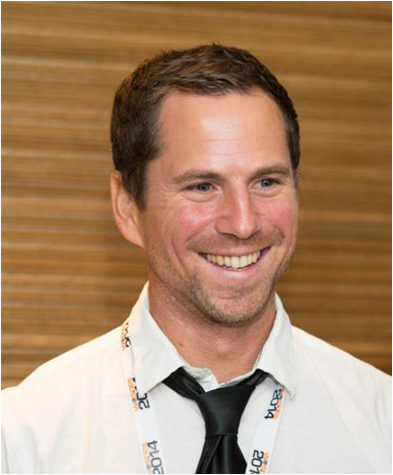
Jean Christophe Le Coze
Safety Research: Evolution, Challenges and New Directions
Jean Christophe Le Coze is a safety researcher with an interdisciplinary background, including in engineering and the social sciences. He works at INERIS, the French national institute for environmental safety. His activities combine ethnographic studies and action research programmes in various safety-critical systems, with an empirical, theoretical, historical and epistemological orientation. Outcomes of his research have been regularly published in the past 10 years in articles, books and special issues of journals. Jean-Christophe has recently hosted the “Paris Workshop” on “New Directions in Safety Research”, putting together a network of active researchers in the field of safety pointing to new issues to be addressed. Topics such as globalisation, critical infrastructure, digitilisation or systemic risks have indeed shaped new operating constraints of high-risk systems and any organisations, with implications for safety.
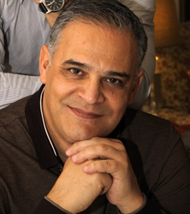
José Eduardo Ferreira Leal
Training and Qualification of Labor Physicians.
José E. Ferreira Leal holds a degree in Medicine and Surgery from the Faculty of Medicine of the University of Porto (1984) and post-graduate in Occupational Medicine by FMUP / DCG (1991-1993) and Post-Traumatic Corporal Damage Assessment by FMUP / INML (2005). He is Head of the Health Department of Sociedade de Construções Soares da Costa SA / Soares da Costa Group (1990) (currently inactive). He is an occupational physician of the ProEF Group – Eurico Ferreira SA (2000), PREH Portugal SA (2014), Salvador Caetano – CaetanoBUS SA Group (2016) and Atlanticare SA (2016). He was Secretary General of the National Congress of Occupational Medicine (CNSO 1994-2008) and of the Portuguese Society of Occupational Health (SPSO 2007). He is Specialist in Occupational Medicine by the Professional Association of Physicians (2000). He was an invited lecturer at the Postgraduate Courses / Masters: Occupational Medicine – FMUP (2000-2013), Human Engineering – EE UM (2003-2008) and Occupational Safety and Hygiene Engineering – MESHO FEUP (2004-2011). He is a member of the Board of Directors of the Occupational Medicine Specialty College of the Professional Association of Physicians (2006) and current President-in-Office (mandate 2015-2018).
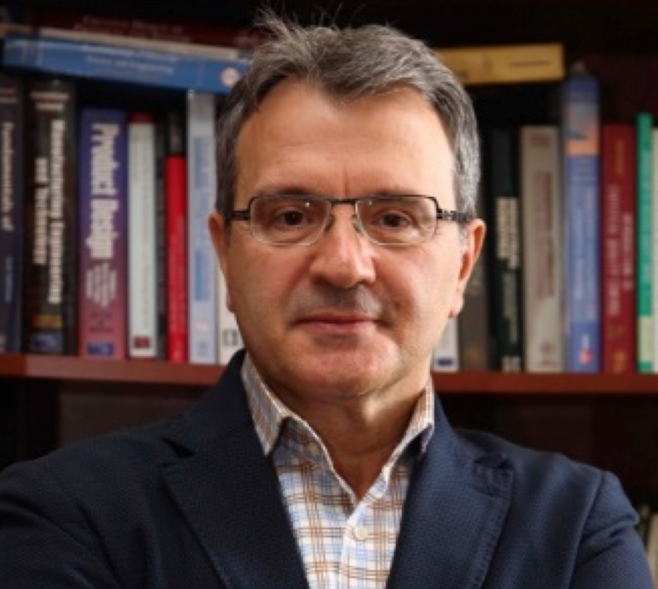
Mahmut EKŞİOĞLU
Ergonomics: A major Element of Occupational Safety & Health
Mahmut Ekşioğlu currently is a professor of Industrial Engineering and Director of Ergonomics Laboratory at Boğaziçi University (Istanbul, Turkey). He trained in the US and Turkey. He received his PhD in Industrial Engineering and MS degrees in Industrial and Aerospace Engineering all in the US and a BS degree in Mechanical Engineering in Turkey. His area of expertise is in Ergonomics/Human Factors Engineering. He has been working in this area since 1992 as an instructor, researcher and consultant both in the US and Turkey. Before joining Boğaziçi University in 2005, he served four years as a full-time faculty member at the department of Industrial Engineering of University of Michigan and involved some research work with Ford Motor Company and tool industry. Prior to academia, he worked as a research scientist at NIOSH (US National Institute for Occupational Safety and Health), and as a consultant in ergonomics and occupational safety and health at Advanced Ergonomics, Inc. (Dallas, US). While in NIOSH, together with two other researchers he developed NIOSH´s Human Vibration Laboratory. In Turkey, his research efforts mainly aimed establishing an “Ergonomics Database for the Population of Turkey” to be used in designing safer and more productive work systems, equipment and products. He published over 70 articles in SCI journals and conference proceedings as well as several book chapters and developed an ergonomics assessment tool. He is also the inventor of the patented “Turkish E-Keyboard” which is also a Turkish Standard (TS 13771). He has memberships in several international professional societies.
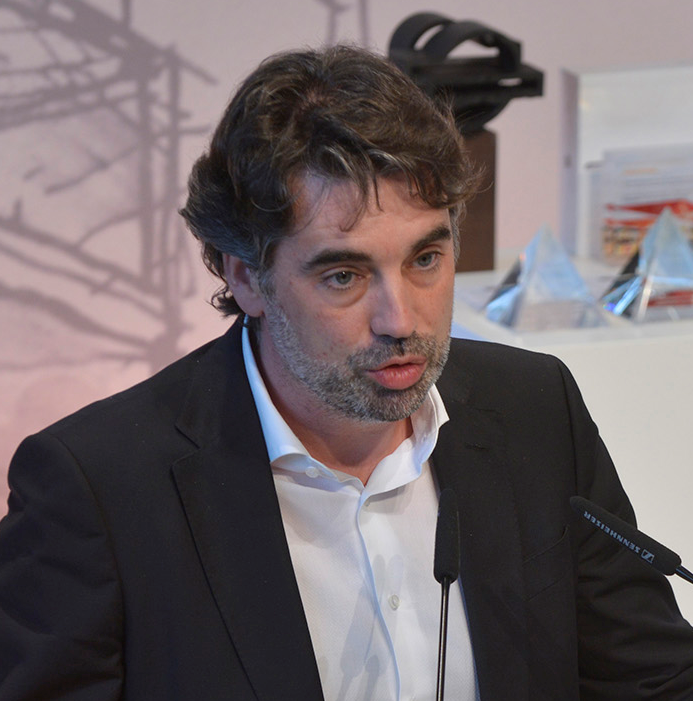
Gustavo Rosal
Augmented Human, Problem or Solution for Ergonomics?
Gustavo Rosal, Ph.D. PrevenControl R&D Director. Human Technology Interaction Engineer. Master of Ergonomics from the university Polytechnic University of Catalonia. Master in Safety, Occupational Health and Occupational Hazard Prevention from Camilo José Cela University. Vice-President of UNE standards: SC5: “Ergonomics and Psychosociology”. Secretary General of Spanish Ergonomics Association. Member of ICOH. President Scientific Committee 7th Congress Spanish Ergonomics Association. Spanish Council Member of International Ergonomics Association.
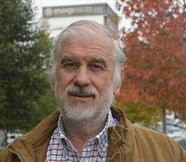
Mário A P Vaz
Occupational Biomechanics for Safety Engineering
Mário A P Vaz obtained his degree in Mechanical Engineering from the Faculty of Engineering of the University of Porto (UP) in 1984;
He holds a PhD in laser interferometry techniques applied to experimental mechanics, from the UP, 1995; In 1985 he joined INEGI (www.inegi.up.pt ), an interface university institute, created by the mechanical engineering department of the UP to offer service and support to industry. He is head of the Laboratory of Optics and Experimental Mechanics (LOME/FEUP/INEGI) since 2000. He has been involved in organizing several national and international conferences both, in experimental mechanics and biomechanics. He is the joint holder of 5 patents applications with two of them registered on experimental techniques and measuring devices and is author of several publications on experimental mechanics and its applications to biomechanics and is one of the founders of the laboratory of biomechanics at the University of Porto (LABIOMEP). He is the president of the general assembly of the Portuguese Society of Experimental Mechanics. In 2016 was elected President of EURASEM by the steering board.
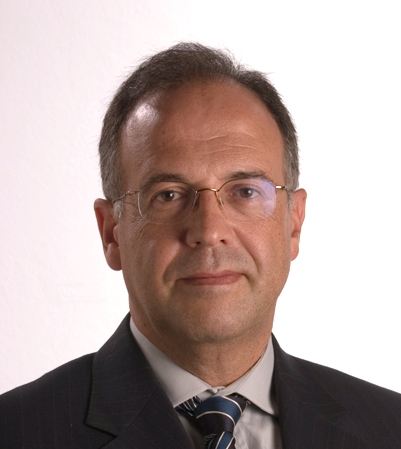
José M. Cardoso Teixeira
Mental Distress in the Construction Activity
PROGRAM
COMMITTEE
Chairman
Secretary
Members
J. Santos Baptista, FEUP
Mónica Barroso, University of Minho
Nélson Costa, University of Minho
Patrício Cordeiro, University of Minho
Paula Carneiro, University of Minho
Rui Melo, University of Lisbon
International scientific committee
Alberto Villarroya López – Servizo Galego de Saúde, Spain
Alfredo Soeiro – Universidade Porto, Faculty of Engineering (FEUP), Portugal
Álvaro Cunha – University of Porto, Faculty of Engineering (FEUP), Portugal
Ana C. Meira Castro – ISEP-School of Engineering, Polytechnic of Porto, CERENA, Portugal
Ana Ferreira – Coimbra Health School, Department of Environmental Health, Portugal
Anabela Simões – Universidade Lusófona – Departamento de Aeronáutica e Transportes, Portugal
Angela C. Macedo – Higher Institute of Maia (ISMAI), Portugal
Angélica de Souza Galdino Acioly – Federal University of Paraiba UFPB), Brazil
Anil Kumar – San Jose State University, USA
Anna Sophia Piacenza Moraes – University of Minho, Portugal
Antonio López Arquillos – University of Málaga. Spain
António Oliveira e Sousa – University of Algarve, Institute of Engineering (ISE), Portugal
Beata Mrugalska – Poznan University of Technology, Faculty of Engineering Management, Poland
Béda Barkokébas Junior – University of Pernambuco, Brazil
Bianca Vasconcelos – University of Pernambuco – UPE, Brazil
Camilo Valverde – Católica Porto Business School – Univ. Católica Portuguesa, Portugal
Carla Barros – Fernando Pessoa University, Portugal
Carla Viegas – GIAS, ESTeSL, Instituto Politécnico de Lisboa, Portugal
Catarina Silva – Faculty of Human Kinetics, University of Lisbon, Portugal
Celeste Jacinto – UNIDEMI, Universidade Nova de Lisboa, Portugal
Celina P. Leão – School of Engineering of University of Minho, Portugal
Cezar Benoliel – ALAEST / Latin American Association of Safety Engineering, Brazil
Cristina Madureira dos Reis – University of Trás-os-Montes and Alto Douro, Portugal
Delfina Gabriela Garrido Ramos – Polytechnic Institute of Cávado and Ave, Technology School, Portugal
Denis A. Coelho – C-MAST, DEM – Universidade da Beira Interior, Portugal
Divo Quintela – Faculty of Sciences and Technology, University of Coimbra, Portugal
Duarte Nuno Vieira – Faculty of Medicine, University of Coimbra, Portugal
Eliane Maria Gorga Lago – University of Pernambuco, Brazil
Ema Sacadura Leite – CHLN Occupational Department, New University of Lisbon, Portugal
Emília Duarte – IADE, Universidade Europeia, UNIDCOM, Portugal
Emilia R. Kohlman Rabbani – University of Pernambuco, Brazil
Enda Fallon -Industrial Engineering, National University of Ireland, Galway, Ireland
Evaldo Valladão – Brazilian Academy of Work Safety Engineering, Brazil
Fernanda Rodrigues – Civil Engineering Department, University of Aveiro, Portugal
Fernando Gonçalves Amaral – Federal University of Rio Grande do Sul (UFRGS), Brazil
Filipa Carvalho – Laboratório de Ergonomia, CIAUD, Universidade de Lisboa, Portugal
Filomena Carnide – Faculty of Human Kinetics, University of Lisbon, Portugal
Florentino Serranheira – National School of Public Health, Universidade Nova de Lisboa, Portugal
Francisco dos Santos Rebelo – Universidade de Lisboa, FMH, Laboratório de Ergonomia, Portugal
Francisco Fraga López – Professor of Applied Physics, Spain
Francisco Masculo – Paraiba Federal University, Brazil
Francisco Silva – Technological Centre for Ceramics and Glass (CTCV), Portugal
Guilherme Teodoro Buest – ABENC – Brazilian Association of Civil Engineers, Brazil
Hélio Cavalcanti Albuquerque Neto – Federal University of Piauí, Brazil
Hernâni Veloso Neto – RICOT, Institute of Sociology, University of Porto, Portugal
Ignacio Castellucci – Escuela de Kinesiología, Universidad de Valparaíso, Chile
Ignacio Pavón – TSI Industriales, Universidad Politécnica de Madrid, Spain
Isabel L. Nunes – Faculty of Science and Technology of NOVA University of Lisbon, Portugal
Isabel Loureiro – School of Engineering of the University of Minho, Portugal
Isabel S. Silva – School of Psychology, University of Minho, Portugal
J. Santos Baptista – Faculty of Engineering, University of Porto, Portugal
Jack Dennerlein – Harvard University / Northeastern University, USA
Jesús A.Carrillo-Castrillo – Universidad de Sevilla, Spain
Joana Cristina Cardoso Guedes – University of Porto, Faculty of Engineering (FEUP), Portugal
Joana Santos – School of Health, Polytechnic Institute of Porto, Portugal
João Areosa – CICS.NOVA; ISLA_Leiria; IPS, Portugal
João Ventura – IN+ (Inov., Tecnologia e Políticas de Desenvolvimento), IST, Portugal
Jorge Gaspar – ISEC Lisboa – Higher Institute of Education and Sciences, Portugal
Jorge Patricio – National Laboratory for Civil Engineering, Portugal
José Castela Torres da Costa – Faculty of Medicine, University of Porto, Portugal
José Cardoso Teixeira – University of Minho, Portugal
José Carvalhais -Faculty of Human Kinetics, University of Lisbon, Portugal
José Keating – School of Psychology – University of Minho, Portugal
José L. Meliá – University of Valencia, Spain
José Miquel Cabeças – Faculty of Science and Technology, New University of Lisbon, Portugal
José Pedro Teixeira Domingues – University of Minho, Portugal
Joseph Coughlin – Massachusetts Institute of Technology – AgeLab, USA
Juan Carlos Rubio-Romero – University of Málaga, Spain
Laura Martins – Universidade Federal de Pernambuco, Brazil
Liliana Cunha – University of Porto, Portugal
Luis Antonio dos Santos Franz – Federal University of Pelotas, Brazil
Luiz Silva – Federal University of Paraíba, CESET-LAT, Brazil
Mª D. Martínez-Aires – Department of Building Construction, University of Granada, Spain
Mahmut Eksioglu – Bogazici University, Turkey
Mahrus K. Umami – University of Trunojoyo Madura – UTM, Indonesia
Manuela Vieira da Silva – School of Health of Polytechnic Porto, Portugal
Marcelo M. Soares – Federal University of Pernambuco, Brazil
Marcelo Pereira da Silva – Federal University of Rio Grande do Sul, Brazil
Maria Antónia Gonçalves – School of Engineering, Polytechnic of Porto, Portugal
Maria José Marques Abreu – Department of Textile Engineering, University of Minho, Portugal
Maria Luísa Matos – FEUP, Portugal
Marino Menozzi – Human Factors Engineering, ETH Zurich, Switzerland
Mário A P Vaz – FEUP-INEGI, Portugal
Marta Santos – University of Porto, Portugal
Martin Lavallière – UQAC, Canada
Martina Kellly – National University of Ireland Galway, Ireland
Matilde Alexandra Rodrigues – Polytechnic Institute of Porto, School of Health, Portugal
Maurília de Almeida Bastos – IFSC, Federal Institute of Santa Catarina, Brazil
Miguel Corticeiro Neves – Portuguese Air Force and Coimbra Health School, Portugal
Miguel Tato Diogo – University of Porto, Faculty of Engineering (FEUP), Portugal
Mohammad Shahriari – Professor at Konya Nacmettin Erbakan University, Konya, Turkey
Monica Frias Costa Paz Barroso – Universidade Minho/SPOSHO, Portugal
Nélson Costa – University of Minho, Portugal
Nelson Rodrigues – University of Minho, Portugal
Olga Mayan – University Institute of Maia, Portugal
Paul Swuste – Safet Science and Security Group TUDelft, The Netherlands
Paula Carneiro – University of Minho, Portugal
Paulo A. A. Oliveira – School of Technology and Management – Polytechnic of Porto, Portugal
Paulo Flores – University of Minho, Department of Mechanical Engineering, Portugal
Paulo Noriega – Universidade Lisboa, Portugal
Paulo Sampaio – University of Minho, Portugal
Paulo Victor R. de Carvalho – Nuclear Engineering Institute, Portugal
Pedro Arezes – University of Minho, Portugal
Pedro Mondelo – UPC, Spain
Pedro NP Ferreira – IST-CENTEC (Centre for Marine Technology and Ocean Engineering), Portugal
Pere Sanz Gallen – University of Barcelona, Faculty of Medicine of Barcelona, Spain
Ravindra S Goonetilleke – Hong Kong Univ. of Science and Technology, China
Rui Azevedo – University Institute of Maia, Portugal
Rui B. Melo – Laboratório de Ergonomia, CIAUD, Universidade de Lisboa, Portugal
Rui Garganta – Porto University. Faculty of Sport Sciences, Portugal
Salman Nazir – University College of SouthEast, Norway
Sara Bragança – Southampton Solent University, United Kingdom
Sérgio Sousa – University of Minho, Portugal
Sílvia Agostinho da Silva – ISCTE-IUL, IBS, BRU-IUL, Portugal
Susana Costa – University of Minho, Portugal
Susana Patrícia Bastos de Sousa – INEGI, Portugal
Susana Viegas – GIAS – Lisbon School of Health Technology, IPL, Portugal
Szabó Gyula – Óbuda University, Budapest, Hungary
Tânia Miranda Lima – University of Beira Interior, Portugal
Teerayut Sa-ngiamsak – Burapha University, Industrial Hygiene and Safety Department, Thailand
Teresa Patrone Cotrim – Laboratório de Ergonomia, CIAUD, Universidade de Lisboa, Portugal
Tomi Zlatar – University of Pernambuco – UPE, Brazil
Waldemar Karwowski – University of Central Florida, USA
Walter Franklin Marques Correia – Federal University of Pernambuco | CAc | Design Depto, Brazil
SUBMISSIONS
Please read carefully all the content of this section before submitting your full-paper/short-paper.
Submission should be done electronically and considering the deadlines presented below.
The short/full paper can be presented as an oral presentation or as a poster.
Due to the limited number of sessions, some authors can be invited to present their work as a poster, even if they have previously indicated their preference as being the oral presentation.
The thematic sessions will be organized by working language (Portuguese or English). Thus, oral presentations will meet the following criteria:
- Scientific Articles | mandatory presentation in English
- Technical Articles |
- Articles written in English | mandatory presentation in English
- Articles written in Portuguese | mandatory presentation in Portuguese
Important note: the inclusion of the approved papers in the symposium publications assumes that authors will present their work at the symposium. If authors fail to present their work, and do not have a justification, they will be prevented to publish any other papers in the next editions of the event.
Description of the revision process and deadlines for the submissions:
Scientific Article – Submission of a full-paper (4-5 pages) in English, which will be published in a book edited by CRC Press (Taylor & Francis). Once accepted, the inclusion of each full-paper will imply the registration of, at least, one of the authors and a payment of a publication fee. This author will receive the printed (hardbound) book.
Technical Article – Submission of a short-paper (2-4 pages) in Portuguese or English, which will be published in a proceedings book (with ISBN). Once accepted, the inclusion of each short-paper will imply the registration of, at least, one of the authors. Each registration allows to submit 1 short-paper. The submission of more than 1 short-paper will imply a fee per additional paper.
TO VIEW THE LIST OF RELEVANT TOPICS CLICK HERE
SCIENTIFIC ARTICLE
- 31/10/2017 Submission deadline. Send to double blind review
- 01/12/2017Decision of review sent by email to main author
- Revised Scientific Article rejected | Scientific Article is conditionally accepted | Scientific Article is accepted
- 15/12/2017Submit revised Scientific Article
- Review by the Organizing Committee
- Revised Scientific Article rejected | Scientific Article accepted
- 30/12/2017Decision sent by email to the author
- Scientific Article will be included in the Final Program and in the printed book (to be sbmitted to ISI and Scopus)
Basic rules for full-papers submission:
- Scientific Articles must be submitted in Word format (.doc ou .docx) in the form field labelled “Paper” and a .pdf version of the same article should be submitted, mandatorily, in the field “Attachment”;
- Scientific Articles can only be submitted in English;
- Authors should indicate the specific area of the paper, using the suggested categories or indicating “Other” (Category no. 27);
- Scientific Articles will be reviewed according to the following criteria: Relevance of the work; Relevance for SHO; Technical/Scientific quality; Originality; Language quality;
- At least one of the (co)authors should be registered by the date of decision sent by email to the author. If none of the authors is registered at this date, the full-paper will be automatically removed from the program and book.
TECHNICAL ARTICLE
- 10/01/2018 Send to double blind review
- 05/02/2018Decision of review sent by email to main author
- Revised Technical Article rejected | Technical Article is conditionally accepted | Technical Article is accepted
- 15/02/2018Submit revised Technical Article
- Review by the Organizing Committee
- Revised Technical Article rejected | Revised Technical Article accepted
- 26/02/2018Decision sent by email to the author
- Technical Article will be included in the Final Program and in a proceedings book (printed with ISBN)
Basic rules for short-papers submission:
- Technical Article can be written both in English and Portuguese;
- Authors should indicate the specific area of the paper, using the suggested categories or indicating “Other” (Category no. 27);
- If Technical Article is submitted in Portuguese it should also have the title in English (Portuguese and English), but the abstract and keywords only in English;
- The minimum length is 2 pages and the maximum is 4 pages, according to the proposed format in the template. Technical Article with more than 4 or less than 2 pages will be automatically rejected;
- Technical Articles will be reviewed according to the following criteria: Relevance of the work; Relevance for SHO; Technical/Scientific quality; Originality; Language quality;
- At least one of the (co)authors should be registered by the date of decision sent by email to the author. If none of the authors is registered at this date, the full-paper will be automatically removed from the program and book.
Selected authors will be invited to submit an extended and revised version of their papers to SPECIAL or REGULAR issues in the peer-reviewed journals to be announced later.
GENERAL INSTRUCTIONS FOR POSTERS:
– Please prepare your poster to fit the dimensions of the template (90 cm wide x 70 cm high);
– It is recommended that posters be prepared to be printed in only one sheet;
– Allocate the top of the poster for the title and authors as stated on the submitted abstract;
– The text, illustrations, etc should be bold enough to be read from a distance of two meters;
– Posters should be printed by authors and delivered to the symposium secretariat during the morning of the 10th March;
– The Organizing Committee will mount the posters on the show boards.
For the preparation of the POSTERS it should be used the template available HERE.

(IJOOES) is an interdisciplinary journal with peer-review promoted by Portuguese Society for Occupational Safety and Hygiene for publication of original research. The authors with the best papers presented at SHO 2018 will be contacted by IJOOES to publish an extended version of their work.
SPONSORS
Organisation

Co-Organisers

Institutional Support
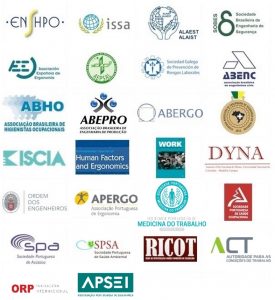
POWERED BY
MEDIA PARTNERS
VENUE
How to reach Guimarães/Universidade do Minho?
The nearest airport is located in Porto, “Aeroporto Francisco Sá Carneiro”.
From the airport to Guimarães, it is possible to catch a direct shuttle (for more information go to this link).
Other options include a taxi (50 km), or a cheaper option, which is to take the “Metro do Porto” (www.metrodoporto.pt), from the airport station (in front of the airport building) to the railway station “Estação de Campanhã”. The train to Guimarães (see train schedule) should be taken from the railway station “Estação de Campanhã”.
By car and using a GPS navigation system, University of Minho shall be identified by entering the following location:
N 41º27’01.58’’
W 8º17’38.08’’
CONTACTS
Organising Comittee
E-mail: sho2018@sposho.pt
Tel: +253 510 367
DPS, Universidade do Minho
4800-058 Guimarães
PORTUGAL
Oficial Secretariat and Accomodation
Viagens Abreu, S.A.
A/C Departamento de Congressos
Avenida dos Aliados, 207
4000-067 Porto
PORTUGAL
tel: +351 222 043 570
fax: +351 222 043 693
e-mail: lurdes.catalino@abreu.pt
SPOSHO
URL: http://www.sposho.pt
E-mail: sposho@sposho.pt
DPS, Universidade do Minho
4800-058 Guimarães
PORTUGAL
